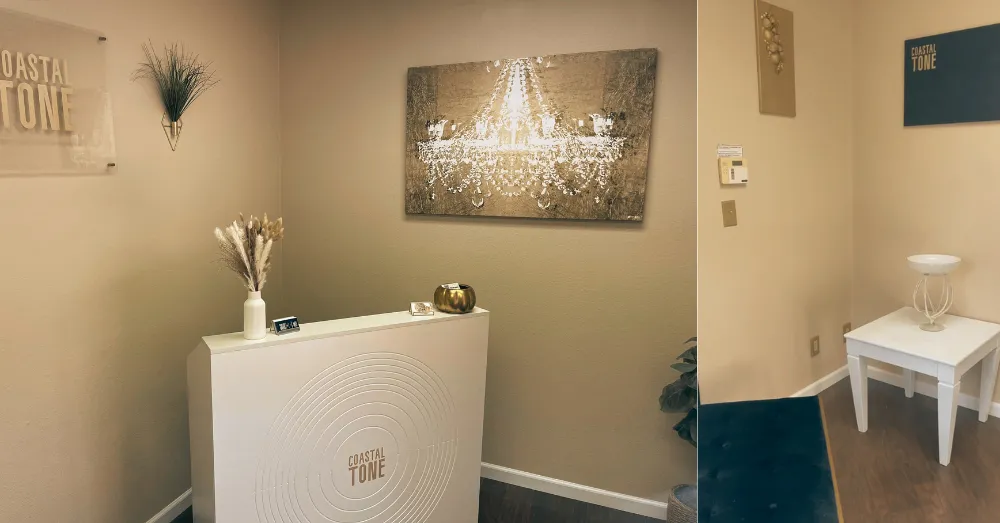



Align Your Mind, Body & Routine
Short reads for long-term results: mindset, body contouring, and lifestyle systems that stick

The Difference Between Discipline and Self Trust
The Difference Between Discipline and Self Trust
In wellness, the word discipline often takes the lead. Many of us believe progress comes only through strict routines. We think results appear when we push harder, follow rules and stay rigid. Although discipline can bring about order, it can also cause us to lose sight of our own needs.
This is where self-trust matters. Self-trust means listening inward. It is the practice of noticing hunger, rest, or shifts in energy. It allows us to pause when the body is asking for ease. It helps us move when energy feels strong. Instead of forcing, self-trust teaches us to cooperate with ourselves.
The difference between discipline and self-trust changes the whole experience of health. One feels like a fight. The other feels like a partnership. Together, they can create balance.
In Arizona, wellness communities are exploring this shift. At a mind body studio in Arizona or within the Arizona lifestyle wellness circle, self-trust is becoming just as valued as discipline. Both matter, but the harmony between them leads to a calmer, more sustainable path.
These two concepts will be discussed in this blog. You'll discover how they work well together, how they vary, and how you may use them to your daily tasks.
Defining Discipline
Many people believe that discipline is the foundation of wellbeing and good health. It is the steady effort that keeps routines in place. Going to the gym, maintaining a regular schedule, or adhering to a diet are common definitions of discipline. It brings structure and order.
There is value in this. Discipline keeps us consistent when we lack motivation. It develops the routines that comprise a healthy way of living throughout time. We are conscious of our everyday expectations when we practice discipline. That predictability can feel safe and grounding.
But discipline also has limits. Excessive use can make it feel stiff. It may create pressure instead of freedom. Some people begin to see wellness only as rules to follow. In this way, discipline can sometimes silence the body’s natural signals. We may push harder when rest is needed. We may ignore hunger or fatigue to stay “on track.”
A healthier approach is discipline with kindness. The goal is not punishment. The goal is steady care. In Arizona, many people are moving toward sustainable wellness practices and intentional movement classes. These choices bring structure without force. They show that discipline can support wellness, but only when paired with awareness and compassion.
Defining Self-Trust
Self-trust is the ability to listen to yourself. It entails paying attention to what the body is requesting at any given time. Sometimes it calls for movement. Other times it needs stillness or rest. Trusting those signals is a form of care.
Self-confidence shows itself in simple ways throughout daily life. You eat when you're hungry. When your energy is low, you take a break. You stop an exercise when it causes pain, instead of pushing harder. These choices may look small, but they build confidence in your body’s wisdom.
Unlike discipline, self-trust is flexible. It does not follow one strict rule. Instead, it creates space for change. Some days will feel active and strong. Other days may feel slower and softer. Both can support health when you trust the rhythm of your own system.
A friendlier connection with wellness results from this strategy. It moves away from body goals and focuses on body trust. Many people in Arizona are finding peace with this gentle wellness approach. They see that health is not about constant control. It is about cooperation.
Self-trust does not replace discipline. But it balances it. With trust, structure becomes supportive instead of heavy. Together, they form a path that feels sustainable and human.
Discipline vs Self-Trust—A Balanced Perspective
How we take care of ourselves is influenced by both self-confidence and discipline. They each bring something valuable. However, relying too much on one can throw things off balance.
Discipline gives structure. It helps build routines that last. It offers consistency. But without self-trust, it can feel rigid or harsh.
Self-trust gives flexibility. It allows us to listen when the body asks for rest or movement. But without discipline, trust can feel chaotic or inconsistent.
When they work together, something powerful unfolds. Discipline offers a foundation. Self-trust brings adaptability. Together, they support a healthier nervous system—which courses through every part of your living and wellness choices.
Recent trends support this thoughtful balance. An example of a more mild alternative to demanding exercise routines is the new wellness movement called "75 Hotter." It puts kindness, self-pacing, and enduring habits above of punishment. Experts claim that by fusing structure and self-awareness without pushing people over their limits, it empowers them.
In an Arizona context, this reflects growing interest in nervous system regulation Arizona, slow living Arizona, and restorative wellness center practices. These trends show that people want habits that support their body’s signals as much as their goals.
So, discipline provides the path. Self-trust keeps that path gentle and aligned. This balance creates harmony. It prevents burnout. And it nurtures wellness built on cooperation with your body—not conflict.
Practical Ways to Cultivate Self-Trust While Staying Disciplined
It is not just theory to strike a balance between self-confidence and discipline. It can be lived. Small, steady practices make this possible.
One simple step is journaling. After movement or rest, take a few minutes to note how your body feels. Over time, these reflections show clear patterns. You begin to see what restores you and what drains you. This builds self-awareness, which is the root of trust.
Another practice is choosing nervous system friendly workouts. These are mild workouts that control energy levels rather than deplete them. Breath-based movement programs, yoga, and tai chi can help to quiet the mind while strengthening the body. According to a 2024 analysis, thoughtful, moderate exercise promotes emotional equilibrium and reduces stress chemicals.
Here, discipline is equally important. Setting aside time for movement, even short daily walks, creates structure. But within that framework, you listen. Some days the body may want intensity. Other days it may ask for stillness. By honoring both, discipline and self-trust work together.
Community support can make this easier. Many in Arizona turn to restorative wellness centers or a mind body wellness Arizona approach. Classes in these spaces encourage intentional movement while reminding people to listen inward. The result is not just fitness. It is balance, calm, and resilience.
Consistency matters too. When you practice small habits regularly, self-trust grows stronger. The body learns you will listen. The mind learns you will follow through. This mix of discipline and trust creates routines that last without burnout.
Wellness then feels lighter. It becomes sustainable. And most of all, it feels kind.
Real-Life Application in a Wellness Journey
The balance between discipline and self-trust becomes clearer when seen in real life. Imagine someone who has always followed strict fitness rules. They never miss a workout. They log every meal. At first, this discipline feels strong. But after time, it becomes heavy. The body grows tired. The mind feels pressured. Wellness starts to look like a burden.
Now picture a shift. The same person begins to practice self-trust. They still show up for movement, but they pause when their energy is low. They try nervous system healing studio practices like yoga or breathwork. They choose a walk in nature instead of a high-intensity class on stressful days. Slowly, wellness feels lighter.
This change brings real benefits. Research shows that self-compassion can be more motivating and effective than harsh self-discipline, especially when handling setbacks and stress.
In Arizona, many are embracing this gentle wellness approach. We are reminded that wellness is not about perfection by communities that are working to redefine beauty and health. It is about partnership with the body.
Discipline gave the foundation. Self-trust brought freedom. They collaborated to design a journey that feels inspiring, serene, and sustainable.
Conclusion
Wellness is not about control. It is about balance. Discipline offers structure. Self-trust offers freedom. Together, they form a path that feels steady and kind.
When discipline stands alone, it can grow heavy. Rules take over. The body’s signals get ignored. When self-trust stands alone, it may lack direction. The result can feel scattered or uncertain. But when the two come together, wellness becomes sustainable.
This is the shift many people seek in their lives. In Arizona, wellness communities are embracing practices that reflect this balance. A studio for elevated living or a mind body studio Arizona creates space for both structure and softness. People discover that health is not a fight. It is cooperation with the body.
True wellness grows from listening, adjusting, and honoring what you need. That process builds energy, calm, and trust in yourself. Discipline and self-trust are not opposites. They are partners. Together, they produce an elevated wellness lifestyle that is peaceful, empowering, and long-lasting. It's about Lifestyle.












